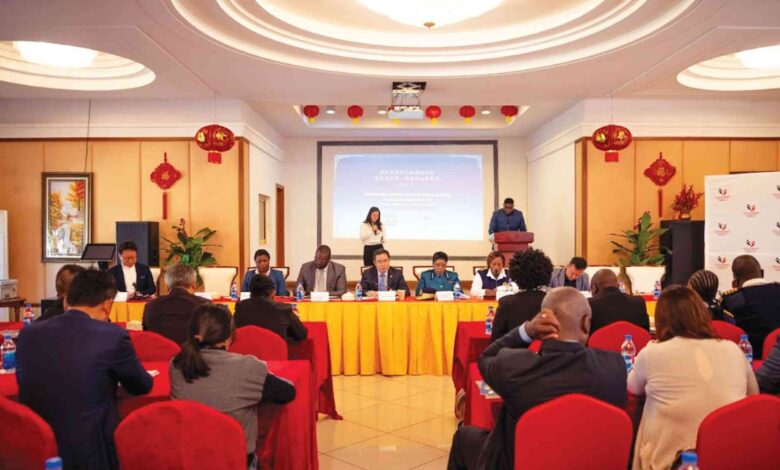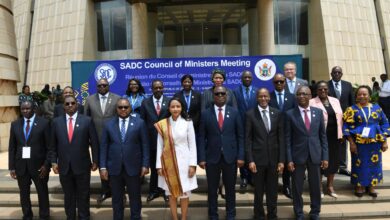Zimbabwe’s China Corridor Sparks Cultural and Economic Renaissance

In recent years, Zimbabwe has experienced a profound transformation in its diplomatic, economic and cultural ties with China, a sweeping evolution now widely recognised as the China Corridor. This growing partnership is reshaping the country’s future, with visible impacts across infrastructure, trade, education and, increasingly, the creative and cultural industries.
While infrastructural investments often dominate headlines, the China Corridor’s influence is just as pronounced in the cultural realm—especially in music, film and education. Chinese martial arts films like Shaolin Temple, Come Drink with Me and Dragon Inn are now regular features at Zimbabwean film festivals. These cinematic experiences are doing more than entertaining; they’re fostering cross-cultural dialogue and inspiring Zimbabwean filmmakers to adopt new storytelling techniques and explore genre fusion.
This cultural engagement extends into music, where artists such as Mwenje Matole, Nyasha David and Fusion 5 Mangwiro are blending Chinese instrumentation and melodies with local Zimbabwean rhythms. Supported by workshops and initiatives from Chinese cultural centres, these collaborations offer a fresh sound while promoting mutual creativity. However, challenges remain—access to instruments and resources continues to be a barrier for many local artists. Slowly but surely, donations and institutional partnerships are helping bridge this divide.
At the educational level, China’s influence has taken root through the Confucius Institute at the University of Zimbabwe. Since 2007, this initiative has grown into a central hub of cultural exchange, offering Mandarin lessons, celebrating Chinese festivals and providing scholarship opportunities to study in China. These programmes are cultivating a new generation of Zimbabweans fluent not just in a new language, but in global citizenship.
Beyond language studies, the China-Zimbabwe Scholarship Friendly Programme is opening doors for Zimbabwean students in critical fields like agriculture, engineering and medicine. Many return equipped with modern skills and a broadened worldview, ready to contribute to national development.
Media also plays a vital role in shaping this corridor. Exchange programmes have enabled Zimbabwean journalists to train in China, focusing on digital media, ethics and international reporting. These efforts are producing professionals who bring global perspectives to local stories, enhancing the country’s narrative on the world stage. Recently, 22 senior journalists from Zimbabwe travelled to Changsha, Hunan province, for an intensive media seminar.
Diplomatically, China has been vocal in its support for Zimbabwe’s sovereignty and in calling for the removal of international sanctions. At major events like the Zimbabwe International Trade Fair, Chinese Ambassador Zhou Ding has reaffirmed Beijing’s commitment to Zimbabwe’s modernisation and peaceful development. These sentiments extend into cultural diplomacy, where shared values of unity and mutual respect guide artistic and academic exchanges.
The Chinese Business Pavilion at ZITF 2024 and upcoming ZITF 2025 further underscores this partnership. With over 30 companies—double the previous year’s count—participating in industries such as ICT, renewable energy, and traditional medicine, China’s footprint in Zimbabwean economic life is rapidly expanding. Notably, around 70% of these businesses now manufacture locally, contributing to job creation and skills development.
Cultural exhibits showcasing acupuncture and herbal remedies have also made an impression, blending trade with tradition and reinforcing China’s soft power influence in Zimbabwe’s social fabric.
Trade between the two nations hit US$3.12 billion in 2023, marking a 29.9% increase from 2022. This growth speaks not only to expanding economic ties but to a broader, more integrated approach that includes cultural diplomacy as a key pillar of bilateral cooperation.
At a recent roundtable hosted by the China Zimbabwe Exchange Centre and the Southern African Research Development Centre, stakeholders resolved to streamline investment protocols, improve safety, and promote greater efficiency in cross-border cooperation.
The China Corridor is proving to be more than a diplomatic alliance—it’s a bridge of shared creativity, education and development. It is empowering Zimbabwe’s youth, enriching its artistic expression and aligning its growth with global cultural and economic currents.
As Zimbabwe continues to navigate this evolving relationship, it does so with a renewed sense of global belonging and a vision for a future that is not just economically resilient, but also culturally vibrant and socially united.




